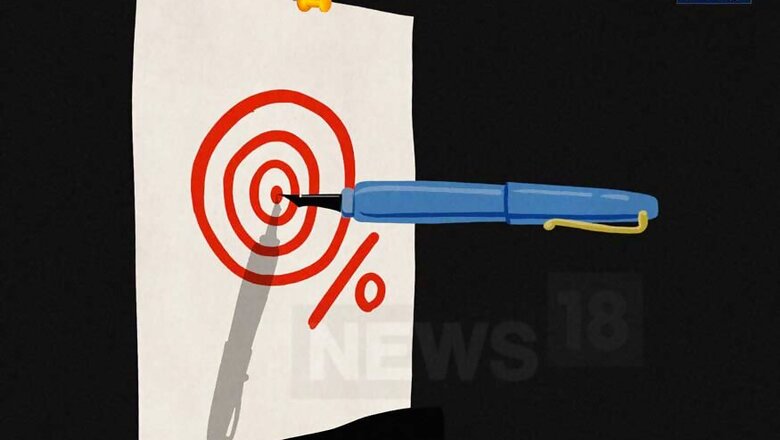
views
Success in the Class 10 Board Exams is an important milestone in a student’s life, and science is a stepping stone for a career in medicine and engineering.
There is no mindless mugging and every concept has some logic. So, to tackle this subject, rote learning will not work, rather one must focus on logical learning. Students can score good marks in science with a thorough understanding of concepts and right preparation.
Physics, Chemistry and Biology are the subjects which constitute the Science paper and in which CBSE Class 10 students are tested based on the chapters in the syllabus. There is a lot to prepare, but you don’t have time? Don’t worry, this issue is faced by almost everyone.
Here’s a list of some of the most crucial topics which should not be missed when revising for your exams.

Now that you have this list of important concepts, try to focus and be thorough with them. Do not miss studying these! There is no shortcut other than this, and you must try hard to get through these concepts at least.
Here is how you can approach, study and go over the Science chapters.
Chemical Reactions and Equations
In this chapter, you should not miss balancing the different types of chemical reactions. Make a list of chemical reactions where the conversion takes place from one compound to another. You need to remember the definitions and examples of each type of reaction.
Acids, Bases and Salts
In this chapter, understanding of the concept rather than mugging will help you learn and score more effectively. An application-type question based on pH is quite likely from this chapter.
Metals and Non-Metals
NCERT textbook questions of this chapter are enough to test knowledge and analytical skills. You should not miss questions in the NCERT book if you wish to score good marks in this chapter. Please check the NCERT Solutions for this chapter.
Carbon and its Compounds
Be thorough with chemical reactions of ethanol and ethanoic acid. You can also expect short questions on the homologous series and electron dot structure. Do not miss the processes of saponification and the cleansing action of soap.
Periodic Classification of Elements
In this chapter, remember the first and last elements present in the groups and periods of the periodic table. Solving various application-based questions from this chapter will help you to clear concepts.
Life Processes
This chapter is a favourite for both short and long answer-type questions. You can expect definitions, reasoning and understanding-based questions from this chapter. You may be asked to draw a diagram and explain any of the organ systems and functions in human beings.
Control and Coordination
You can expect process-oriented questions from this chapter. Don’t forget to revise the structure and functions of the human brain and the concepts of the reflex arc and synapse. For example, what happens at the synapse between two neurons? (Watch video)
How Do Organisms Reproduce?
Typically from this chapter, you might be asked questions on either binary fission in Amoeba or budding in Hydra. You are expected to draw neat and well-labelled diagrams while explaining the process.
Heredity and Evolution
The most difficult chapter is Heredity and Evolution, but it also has the most weightage. Although you may get scared even looking at this chapter, keep calm and try solving the problems based on Mendelian genetics.
Here’s how you approach a problem based on Mendel’s laws of inheritance.
- A scientist crossed the F1 generation of pure breeding parents for round (dominant) and wrinkled (recessive) seed pea plants and obtained 7524 plants. What will be the number of round seeded plants he obtained? (View solution)
For more of such solved questions, you can always browse the Doubts and Solutions section at TopperLearning.com. This section will not only help you to understand the types of questions asked from this particular chapter but also to know the answers to questions other students found difficult.
Light: Reflection and Refraction
From this chapter, you can expect numericals based on the concept of mirror formula and lens formula. Hence, a good practice of numericals is necessary to score well. Mastery of ray diagrams will definitely help you to solve questions quickly and precisely in the exam. Also study the concept Spherical lens and its power.
Human Eye and the Colourful World
Questions in the exam typically come from the topic Defects of Vision and their Correction. Understanding the phenomena of scattering and atmospheric refraction in this chapter is also very important to score good marks.
Electricity
This is a favourite chapter of the examiner and also an important one. Questions on the series and parallel combination of resistances must be practised thoroughly to score good marks. Also expect numericals based on Ohm’s law and the heating effect of electric current from this chapter.
Magnetic Effects of Electric Current
Mostly theoretical questions of either short or long answer-type come from this topic. So, you must have a very clear understanding about Fleming’s rule and Faraday’s law of electromagnetic induction.
Sources of Energy
This chapter deals with renewable and non-renewable sources of energy. As per exam trends of previous years, not much weightage has been given to this topic in the board exams.
Our Environment
You can expect 2 or 3 marks questions from this chapter. Mostly, questions are based on environmental issues and managing garbage and pollution. You can even expect a short numerical based on the 10 percent law of energy transfer.
Management of Natural Resources
In this chapter, the favourite questions of examiners are based on the concepts of dams and conservation and sustainable use of resources. You are expected to express your own opinions and personal views on such open-ended questions.
There you go! That's all. If you religiously follow this strategy, you can expect to score good marks in the science exam. Enjoy what you learn, be curious, watch videos, make notes, share what you know with friends and practice regularly.
Remember that efforts need to be consistent to score well in your exams. No miracle will happen the night before the exam. Stay calm and focus. All the best!



















Comments
0 comment